
-
Find the right food for your petTake this quiz to see which food may be the best for your furry friend.Find the right food for your petTake this quiz to see which food may be the best for your furry friend.Featured products
 Adult Perfect Digestion Salmon, Whole Oats, and Brown Rice Recipe Dog Food
Adult Perfect Digestion Salmon, Whole Oats, and Brown Rice Recipe Dog FoodScience Diet's breakthrough nutrition supports ultimate digestive well-being & healthy microbiome
Shop Now Hill's Science Diet Adult Oral Care Chicken, Brown Rice & Barley Recipe Dog Food
Hill's Science Diet Adult Oral Care Chicken, Brown Rice & Barley Recipe Dog FoodClinically proven kibble technology to reduce plaque & tartar build-up
Shop Now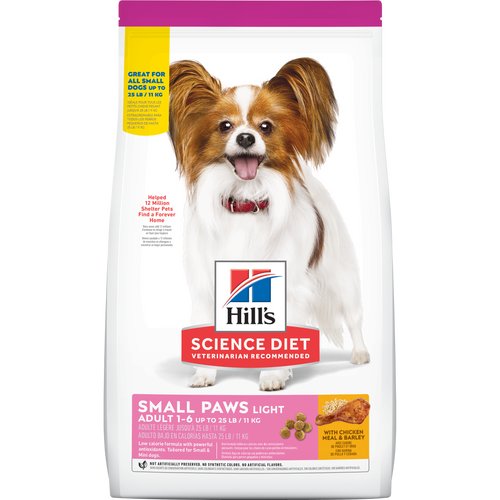 Adult Light Small Paws with Chicken Meal & Barley Dog Food
Adult Light Small Paws with Chicken Meal & Barley Dog FoodLow calories for less active small & mini dogs
Shop NowFeatured products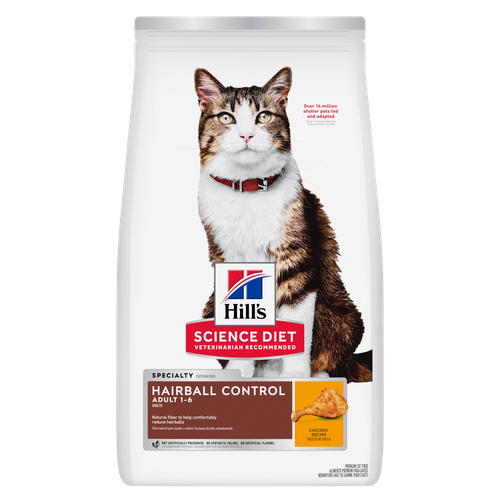 Adult Hairball Control Chicken Recipe Cat Food
Adult Hairball Control Chicken Recipe Cat FoodNatural fiber to help comfortably reduce hairballs
Shop Now Adult 7+ Chicken Recipe cat food
Adult 7+ Chicken Recipe cat foodSupports energy level and beautiful fur in mature cats
Shop Now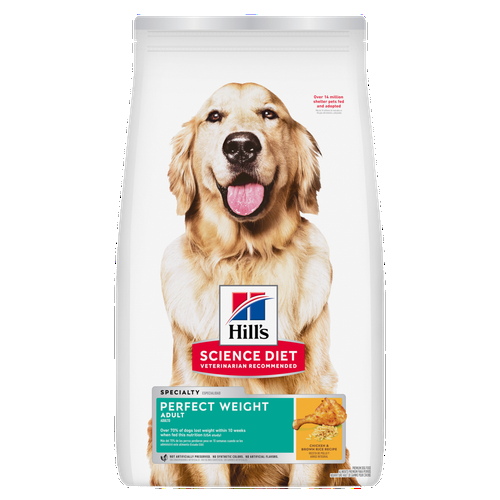 Adult Perfect Weight Chicken Recipe Dog Food
Adult Perfect Weight Chicken Recipe Dog FoodOver 70% of dogs lost weight within 10 weeks when fed this nutrition (USA Study)
Shop Now -
Dog
- Dog Tips & Articles
-
Health Category
- Weight
- Food & Environmental Sensitivities
- Urinary
- Digestive
- Joint
- Kidney
-
Life Stage
- Puppy Nutrition
- Adult Nutrition
- Senior Nutrition
Cat- Cat Tips & Articles
-
Health Category
- Weight
- Skin & Food Sensitivities
- Urinary
- Digestive
- Kidney
-
Life Stage
- Kitten Nutrition
- Adult Nutrition
Featured articles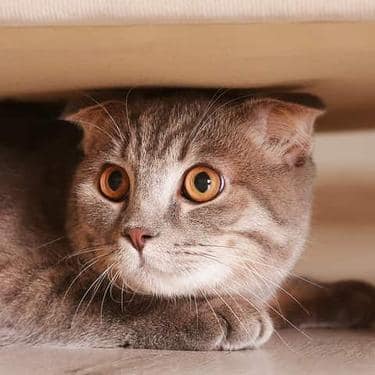 Keeping Pets Calm During Thunderstorms
Keeping Pets Calm During ThunderstormsIs your dog scared of thunder? Does your kitty dart under the bed at the first rumble? Learn a few tips for keeping your pets calm during the storm.
Read More How to Reduce Your Pet's Carbon Paw Print
How to Reduce Your Pet's Carbon Paw PrintHeaded outside? How you and your pets engage with nature can affect the environment, so here are some quick tips for reducing your pet's carbon paw print.
Read More Moving With a Pet: A How-To Guide
Moving With a Pet: A How-To GuideDiscover helpful tips for moving with your pet including safety recommendations to keep in mind on moving day & pet behavior to watch for at your new home.
Read More -


From healthy kitten to happy cat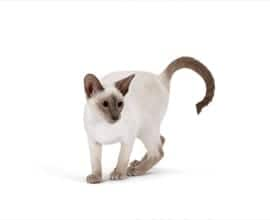
Every new kitten owner wants their cuddly new companion to grow into a healthy, happy cat. So it's important that you play a part in ensuring your kitten stays in good health. For example, correct feeding and completing the first course of vaccinations are essential for her to thrive. But also in that first year, pay regular visits to your vet for check-ups. That way, you can rest assured that your kitten is growing and developing to her full potential.
Maintaining a purrfect coat and healthy skin
The right diet, regular grooming and clean, comfortable living conditions should keep your kitten's coat and skin healthy. But unfortunately, kittens (just like adult cats) can suffer from skin conditions. Their hair can become dull, and may fall out, or their skin can become red, itchy and sore. The causes of these conditions vary, from sensitivity to a particular food, insect bites, allergies, mites, parasites, or even over-grooming.
Fleas
Some kittens develop an allergy to flea saliva; this is known as "flea-bite hypersensitivity" or flea allergy. If your kitten has this condition, she'll come out in itchy, crusty spots on her skin. And a single flea bite can cause a condition known as "miliary dermatitis" with the same unpleasant symptoms. If you notice any of these signs in your kitten, contact your vet right away and you'll be prescribed something to relieve the irritation and most importantly something to get rid of the fleas.


Tasty Tips
Ringworm
No, Ringworm isn't a parasite; it's the name given to a fungal condition that brings a kitten's skin out in a circular rash. Ringworm can be passed from cat to cat but also from cat to human. It's not easy to spot, so if you only have a suspicion that your kitten has a coat or skin problem, it's best to get in touch with your vet.
Your kitten's ears
Regular, gentle handling of your kitten, and especially her ears, will enable you to check them for problems without alarming her. And if your kitten does have a problem, you'll soon know about it. Firstly, her ear will be lowered, and she'll be likely to shake her head quite a lot, too. Also, if you happen to notice any grey or dark brown dry or waxy deposits, they're a sure sign of mites. Happily, they can be easily treated by your vet.
Your kitten's eyes
As you'd expect, your kitten's eyes should be clear and bright, with no discharge. Any stickiness in her eyes could be the result of an infection. Bathe the discharge from your kitten's eyes regularly, using a solution of warm water and salt (about a teaspoon to a pint is a good guide). Because the infection could have many causes it's best to take your kitten to the vet.
Catchooo!!
Sneezing can also be a sign of upper respiratory disease, often called 'cat flu', so if you notice anything more than the occasional sneeze, a visit to the vet is advised.
But it's also worth remembering that sneezing could be the result of pollen inhalation, a blade of grass or grass seed, dust, household sprays or cigarette smoke.


One of our staff authors prepared this article for you
Related products
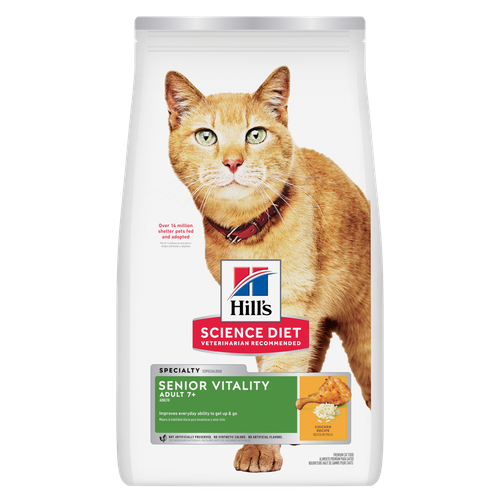
Improves Everyday Ability to Get Up & Go

Supports energy level and beautiful fur in mature cats

Natural fiber to help comfortably reduce hairballs

Over 70% of dogs lost weight within 10 weeks when fed this nutrition (USA Study)
Related articles
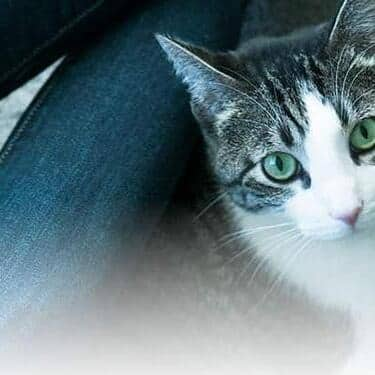
Brushing your cat's teeth is just as important as brushing your own. Learn signs or oral health problems in your cat and how to avoid them.

What is the best food for an overweight cat? Learn all about weight control food for cats, including what's in it and how it works.
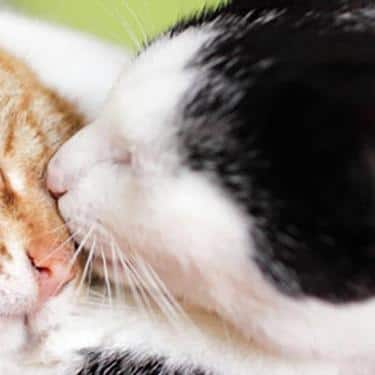
Learn the different factors that might be contributing to your cat's weight gain, and how bigger doesn't always mean better.

Discover how to identify cat sensitive skin and what you can do to help your cat thrive from head to paw.

Put your cat on a diet without them knowing
Our low calorie formula helps you control your cat's weight. It's packed with high-quality protein for building lean muscles, and made with purposeful ingredients for a flavorful, nutritious meal. Clinically proven antioxidants, Vitamin C+E, help promote a healthy immune system.
Put your cat on a diet without them knowing
Our low calorie formula helps you control your cat's weight. It's packed with high-quality protein for building lean muscles, and made with purposeful ingredients for a flavorful, nutritious meal. Clinically proven antioxidants, Vitamin C+E, help promote a healthy immune system.

